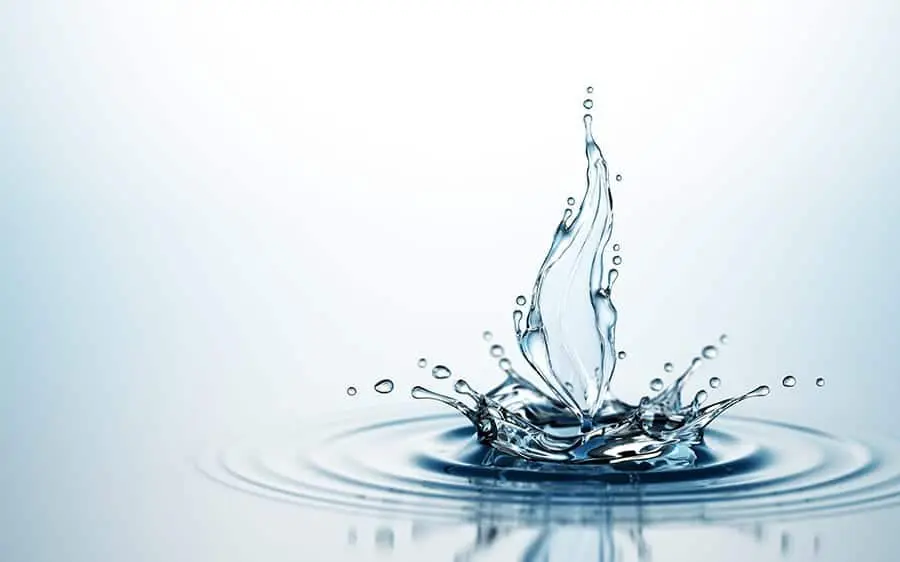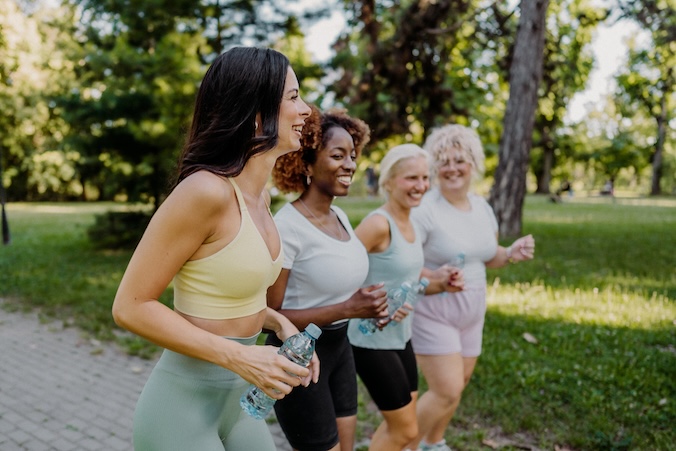What are the benefits of electrolytes in your diet?

Most of us will have powered our way through a gruelling workout, only to be left feeling in need of hydration and a little bit worse for wear afterwards. Alternatively, you may have spent long stretches of the day in sizzling sunshine, simply to be left feeling as though you’ve run a marathon.
Afterwards, you may feel dehydrated, sick or dizzy, or you may experience muscle spasms or headaches. Whatever happens, you definitely won’t feel like yourself!
Yet, what many of us don’t realise is that this can be caused by the loss of electrolytes which leave our bodies when we sweat, especially over long periods of time.
What Are Electrolytes?
Electrolytes are crucial in helping us to feel and perform our best. However, many of us are pretty clueless when it comes to what they are, and what they do. In fact, many of us don’t even know that they exist!
Simply put, electrolytes are small and charged particles that our body needs for optimum health. They’re found in our food and drink, and there are many different electrolytes which are all used for different functions.
Potassium, magnesium, calcium, sodium, phosphate and chloride are some of our body’s key electrolytes. As salts, they form ions as they dissolve in water and have an electric charge. These salts can come in the form of ionic minerals.
Once electrolytes make their way into our bodies – either through food or through drink – they get filtered into the bloodstream, thanks to our kidneys.
What Do Electrolytes Do?
In a nutshell, we need electrolytes for all sorts of things! They are essential in keeping our bodies as healthy and as happy as can be.
For starters, they help our bodies to balance fluid levels and maintain hydration. This is because the way in which sodium and potassium moves in and out of cells dictates how much our body holds on to water, and how much it flushes out.
Since electrolytes have an electrical charge, our nerve cells also need them to carry electrical impulses around the body. Not only does this help our nervous system to thrive, but it also supports muscle function (it tells our muscles when to relax and when to contract) and keeps our brains strong and our minds focused and clear. Scientists also believe that electrolytes keep our hearts healthy!
If we don’t have enough electrolytes within the body, imbalances can trigger fatigue, muscle cramps or spasms, headaches, dizziness, anxiety and even sleep problems.
Imbalances can be caused by dehydration, intense exercise (this causes us to sweat and lose water and sodium), soaring temperatures, vomiting and diarrhoea, malabsorption of nutrients, and even age – as we get older, our bodies are less able to strike a balance with electrolytes.
Examples of electrolytes and their benefits
Key examples of electrolytes found as ionic minerals include:
- Sodium (Na+) – This is usually the one electrolyte we are not deficient in, since the typical Western diet is full of salt! However, it’s worth remembering that our bodies need salt, just not in excessive amounts. As an electrolyte, we use sodium to regulate water in the body, telling us how much to keep and how much to flush out. Sodium also triggers electrical impulses, which carry messages to and from the brain, and is crucial in muscle function, energy metabolism, and cardiovascular health. On the flipside, high sodium levels can lead to rocketing blood pressure – we need an electrolyte balance!
- Potassium (K+) lurks within our cells and works alongside sodium to balance water in the body. We also need it for muscle function, glucose metabolism, and for causing electrical impulses, which our bodies need for nerve signalling. Diets rich in potassium can help the body to counteract the damage done by too much salt, lowering blood pressure and reducing the risk of stroke. However, when we eat too little potassium, our blood pressure can soar and we can become at risk of kidney stones.
- Magnesium (Mg++) is a bit of a wonder, and can help the body in all kinds of ways! In fact, magnesium activates more than 300 enzyme reactions in the body, meaning it is essential for a healthy body. It can regulate muscle and nerve function, keep blood sugar and blood pressure levels balanced and healthy, and even help the body to make protein, bone, and DNA. Magnesium is also needed for better sleep and relaxation, regulating our mood, and energy metabolism. When we don’t consume enough magnesium, we can suffer with muscle cramps, fatigue, PMS and bad moods. You can find it in our H30 Hydration supplement.
- Chloride (Cl-) also helps us to keep a healthy fluid balance in the cells, helping water to travel in and out of cells. It also enables our bodies to maintain a healthy pH balance.
- Calcium (Ca++) is known by most of us for its work in building strong bones and teeth (when we don’t eat enough calcium, we are at risk of Osteoporosis), but it also helps with muscle repair and muscle contractions, including in the heart. Happily, you can find calcium in our H3O Hydration Formula!
How to replenish Electrolytes in your Diet
If you think you’re at risk of an electrolyte imbalance, or would like a super-charged electrolyte boost after a tough workout or a day in the sun, here are some ideas for electrolyte-charged snacks or foods:
Drink Up
There are certain plant waters which are naturally high in electrolytes, such as coconut water and birch water. These are great for rehydration. However, remember that coconut water doesn’t contain sodium, so you should add a sprinkling of pink Himalayan salt to keep things balanced.
Avocado
A nutritional powerhouse, avocados aren’t just full of healthy fats – they’re also one of nature’s best sources of potassium (they contain around double the potassium of bananas), and also contain magnesium! For the perfect snack, sprinkle over some pink salt and add a squeeze of lemon juice.
Watermelon
Rehydrating and refreshing, watermelon is one of our favourite snacks on a summer’s day. However, it’s also a brilliant option to reach for after an intense workout as it contains potassium, water and natural sugars. Snacking on a few watermelon slices after exercise can replenish water intake, energy levels and also electrolytes. Alternative sources of potassium include dried apricots and other dried fruits, as well as bananas, sweet potatoes and mushrooms.
H30 Hydration
Our award-winning H3O supplement is the perfect drink for anyone looking to boost their electrolyte intake! It provides all the minerals and ions which are key in hydration for skin and health, including some of those we mentioned above such as calcium and our all-round super star magnesium. The minerals in H3O are ionic and hypotonic, and also include potassium chloride and sodium citrate, making this the perfect formula to drink up post-workout for replenishment.
This powdered supplement is easy to drink, and can help to reduce tiredness and fatigue, protect cells from oxidative stress and support cell division. For an anti-ageing boost, it also contains Hyaluronic Acid (AKA the fountain of youth), which can hold up to 1,000 times its own weight in water and inulin, a soluble fibre which increases calcium absorption and possibly magnesium absorption, while promoting the growth of intestinal bacteria. H3O hydration is a healthier alternative to many sports drinks, which are often high in calories and sugar, or contain unwanted additives.
Sauerkraut
Pickled veggies are a great, gut-boosting source of sodium! Simply add a spoonful or two to each meal. Most veggies and fruits don’t contain sodium, but you can also find it in sun-dried tomatoes, spinach, sweet potatoes and red peppers.
Yogurt
Rich in protein and calcium, natural or Greek yogurt is a healthy addition to diets, unless you have a dairy intolerance. However, many dairy-free milks, including almond milk, are now fortified with calcium, while you can also find it in collard, bok choy, broccoli, dried apricots and figs, plums, kiwi, tangerines and oranges.
Super Greens
The perfect detox food, greens such as spinach, kale and Swiss chard, are often rich in magnesium, while many of them also contain calcium. Add handfuls to each meal to reap the rewards and all the additional nutrition they come with.
Kelp
These wondrous sea leaves contain all sorts of electrolytes: sodium, potassium, magnesium, calcium and chloride. Try adding handfuls of organic kelp leaves to your diet for a boost.






